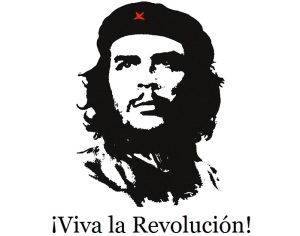H101 –Viva la Revolucion!
 Authors Knox and Murray, in the textbook, The Dynamics of Military Revolution, analyze the major historical changes in the nature of warfare in the modern period. They call these Military Revolutions (MR). A subset of those revolutions are smaller specific changes in the methods of warfare, they consider these smaller scale more focused changes Revolutions in Military Affairs (RMA). The major military debate coming in the next years is how to structure the American military for the 21st Century. In that debate it is important to determine if warfare currently is in the midst or has undergone an MR based on emerging and existing digital information technologies. Do you think the US Army leadership believes that an MR has occurred or is occurring? What is the evidence of that? Regardless of what you believe the US Army leadership thinks regarding MRs, what is your opinion?
Authors Knox and Murray, in the textbook, The Dynamics of Military Revolution, analyze the major historical changes in the nature of warfare in the modern period. They call these Military Revolutions (MR). A subset of those revolutions are smaller specific changes in the methods of warfare, they consider these smaller scale more focused changes Revolutions in Military Affairs (RMA). The major military debate coming in the next years is how to structure the American military for the 21st Century. In that debate it is important to determine if warfare currently is in the midst or has undergone an MR based on emerging and existing digital information technologies. Do you think the US Army leadership believes that an MR has occurred or is occurring? What is the evidence of that? Regardless of what you believe the US Army leadership thinks regarding MRs, what is your opinion?
H100/101 Critical Thinking and Military History
 One of the recent popular books that delves into the subject of critical and creative thinking is Malcolm Gladwell’s best selling Blink: The Power of Thinking Without Thinking. This book y is a fairly in depth discussion of intuitive decision making. What is interesting is that I was not expecting Gladwell to talk about the military, but he does. The following is one excerpt from the book:
One of the recent popular books that delves into the subject of critical and creative thinking is Malcolm Gladwell’s best selling Blink: The Power of Thinking Without Thinking. This book y is a fairly in depth discussion of intuitive decision making. What is interesting is that I was not expecting Gladwell to talk about the military, but he does. The following is one excerpt from the book:
“Of all the interviews I conducted while researching Blink, the one that made the most lasting impression on me was my interview with General Paul Van Riper –the hero (or villain) of the Pentagon’s Millennium Challenge war game…. I remember being surprised when he took me on a tour of his house by the number of books in his study. In retrospect, of course, that’s a silly thing to find surprising. Why shouldn’t a Marine Corps general have as many books as an English professor? I suppose that I had blithely assumed that generals were people who charged around and “did” things; that they were men of action, men of the moment. But one of the things that Van Riper taught me was that being able to act intelligently and instinctively in the moment is possible only after a long and rigorous course of education and experience. Van Riper beat Blue Team because of what he had learned about waging war in the jungles of Vietnam. And he also beat Blue Team because of what he had learned in that library of his. Van Riper was a student of military history.”
So, given the above and the readings for H101, consider the following questions:
Do you agree that military history is a critical tool for the professional officer? If so, how do you rate the army as an institution, providing and emphasizing that skill? Why?
If you think its an important skill, is it only important for senior leaders and field grade officers? Does it have uses for the company grade officer and NCO as well?
If it is an important skill –what can the Army do to teach the skill better than it does?
-
Archives
- November 2018 (1)
- October 2018 (5)
- September 2018 (4)
- August 2018 (1)
- February 2018 (3)
- January 2018 (6)
- November 2017 (2)
- October 2017 (4)
- September 2017 (5)
- August 2017 (2)
- March 2017 (6)
- January 2017 (6)
-
Categories
-
RSS
Entries RSS
Comments RSS